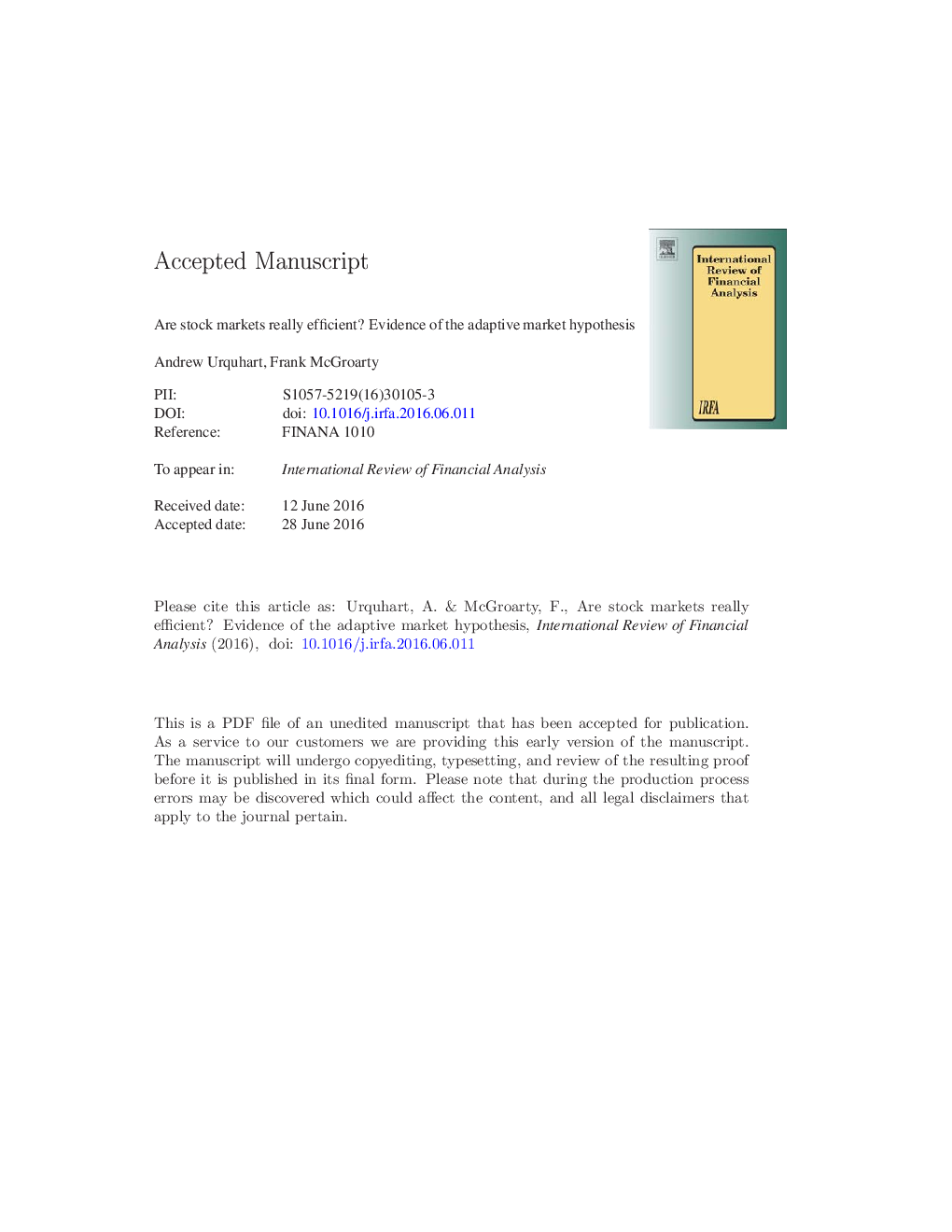| Article ID | Journal | Published Year | Pages | File Type |
|---|---|---|---|---|
| 5084501 | International Review of Financial Analysis | 2016 | 31 Pages |
Abstract
This study examines the adaptive market hypothesis in the S&P500, FTSE100, NIKKEI225 and EURO STOXX 50 by testing for stock return predictability using daily data from January 1990 to May 2014. We apply three bootstrapped versions of the variance ratio test to the raw stock returns and also whiten the returns through an AR-GARCH process to study the nonlinear predictability after accounting for conditional heteroscedasticity through the BDS test. We evaluate the time-varying return predictability by applying these tests to fixed-length moving subsample windows and also examine whether there is a relationship between the level of predictability in stock returns and market conditions. The results show that there are periods of statistically significant return predictability, but also episodes of no statistically significant predictability in stock returns. We also find that certain market conditions are statistically significantly related to predictability in certain markets but each market interacts differently with the different market conditions. Therefore our findings suggest that return predictability in stock markets does vary over time in a manner consistent with the adaptive market hypothesis and that each market adapts differently to certain market conditions. Consequently our findings suggest that investors should view each market independently since different markets experience contrasting levels of predictability, which are related to market conditions.
Keywords
Related Topics
Social Sciences and Humanities
Economics, Econometrics and Finance
Economics and Econometrics
Authors
Andrew Urquhart, Frank McGroarty,
